2021 Mainers of the Year
The leaders who have shaped the state over the past year.
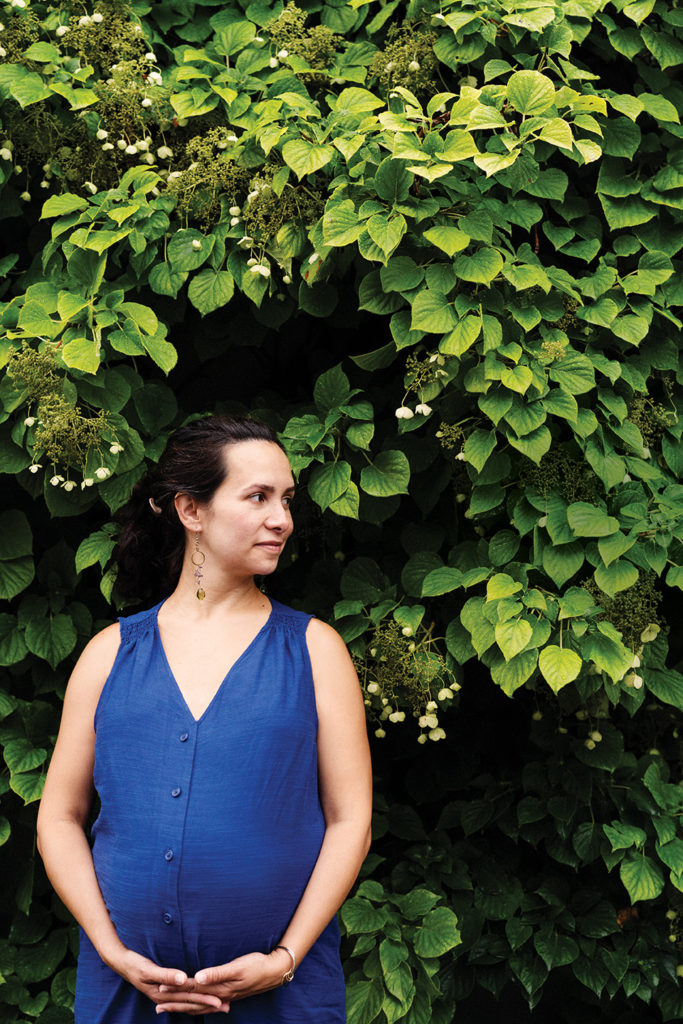
Mainers of the Year
The leaders who have shaped the state over the past year.
By Rachel Hurn and Paul Koenig
Photography by Dave Dostie, Séan Alonzo Harris, Ben Macri, Tara Rice, and Michael D. Wilson
Issue: October 2021
The coronavirus pandemic has been the dominant through line in all our experiences over the past year and a half, and few aspects of our lives have been spared disruption or strife. In our inaugural Mainers of the Year feature, we are recognizing the individuals who didn’t shy from challenges, who made our lives better. From around Maine and across five sectors—public service, business, science and medicine, art and culture, and the environment and outdoors—these Mainers embody the state’s motto: I lead. They did so with resourcefulness, compassion, and creativity. They provided steady leadership while others were stoking fear and confusion. They reinvented their businesses and organizations to keep Mainers employed. They cared for our children and kept us healthy. They provided escapes to the outdoors and other worlds when we needed them the most. They elevated marginalized individuals and demonstrated the power of art. They showed us a path forward.
Health + Science
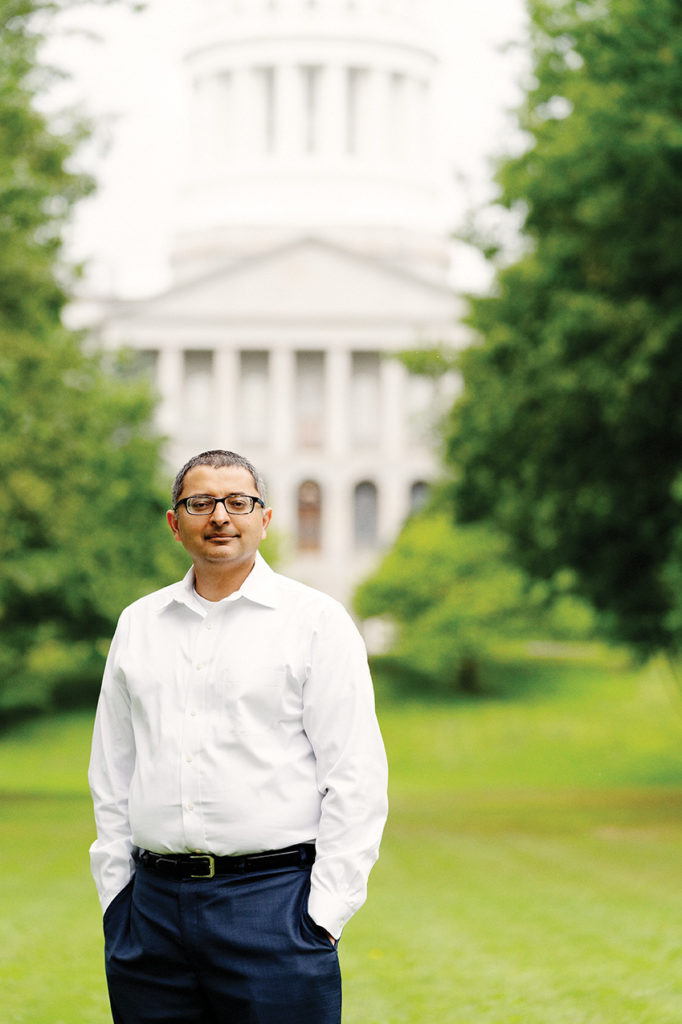
Dr. Nirav D. Shah
Director of the Maine Center for Disease Control
Less than a year on the job as the director of the Maine Center for Disease Control, Dr. Nirav D. Shah found himself as the face of Maine’s response to a global pandemic. In the early stages, while some politicians in Washington, D.C., were downplaying the dangers of COVID-19, Shah was trying to establish through daily public briefings a common understanding of what was happening in Maine, including how the virus was transmitted and who was at risk. “We can’t talk about what we can do until we agree on what’s going on right now,” he says. In a pandemic that has killed nearly 1,000 Mainers and more than 4 million people across the world, Shah often must deliver bad news, but he never sugarcoats or obfuscates it. His clear-eyed delivery of information—good and bad—and calls to action are often peppered with allegory and humor to better connect with the public. “If I just get up and read a litany of numbers, they’re not going to listen to the rest of it, which is to help people stay safe,” Shah says. He faced some pushback as a result of the state’s vaccination strategy—utilizing a handful of large-scale vaccination sites around the state and an age-based eligibility schedule—but it helped make Maine one of the most vaccinated states throughout the process. “Given the state’s rural nature and the fact that our vaccination efforts started in the dead of winter, getting so many shots in arms here was a major accomplishment,” Shah says. In late June, at the end of Maine’s state of emergency and before public briefings returned with the emergence of the Delta variant, Shah reflected on his role since March 2020. “I don’t know most of you, but I feel like I do,” Shah told viewers. “The most meaningful piece of this to me is the fact that someone new to Maine, a guy from another state who has only been here for two years, could come to be viewed as someone to tune into.”

Dr. Steven Diaz
Chief Medical Officer of MaineGeneral Health
As chief medical officer at MaineGeneral Health, the healthcare system serving the greater Kennebec Valley, Dr. Steven Diaz has worked throughout the pandemic to keep his community safe. Networking with chief medical officers throughout Maine, Diaz acted as an advisor on COVID-19-related issues to the state, area colleges and businesses, and, perhaps most important, grade schools. “Delivering just-in-time, key public health messages via Zoom, radio, and other platforms has helped the public to make the best decisions for themselves and their families, and has hopefully helped people understand the ‘why’ of many initiatives,” says Diaz. In addition to his work at MaineGeneral, he is also the chair of the Maine Hospital Association and is an EMS medical director for Delta Ambulance, which provides full spectrum emergency medical services. “The Delta Ambulance partnership with area hospitals and nursing homes has been a key component of our community weathering the pandemic so well,” he says. Diaz’s belief in coordinated care has only grown since the pandemic started. He is proud of having helped MaineGeneral to launch an addiction medicine practice. “The opiate epidemic continues to ravage our communities in Maine,” he says. “We have long recognized that coordinated care is important to meet people where they are and provide them individualized care.”
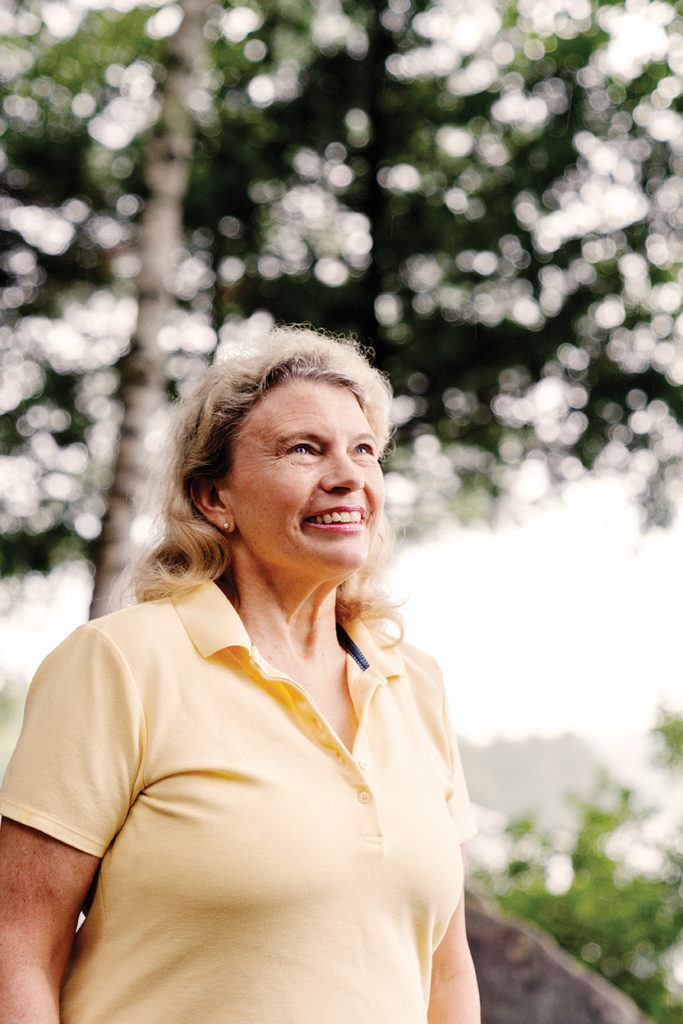
Dr. Dora Anne Mills
Chief Health Improvement Officer of MaineHealth
In late January 2020, just days after the first confirmed COVID-19 case in the United States, Dr. Dora Anne Mills posted a message on her Facebook page about what health officials knew about the novel coronavirus. By March 2020, her lengthy posts, prefaced with “Not-So-Brief COVID-19 Update,” had become more frequent. They covered everything from why the small numbers of cases in Maine indicated concerning exponential growth to stories about how her own family was dealing with fear and uncertainty. Throughout the pandemic, Mills has continued her regular Facebook postings explaining different aspects of COVID-19 and providing encouragement and hope to her thousands of followers. As the chief health improvement officer for MaineHealth, Mills is especially proud that the healthcare system organized ten mass vaccine clinics, administering more than 420,000 COVID-19 vaccinations, and is partnering with the Good Shepherd Food Bank to open three food pantries in communities with unmet needs: Portland, Farmington, and Norway. Mills, former director of the Maine Center for Disease Control, says she writes almost all her Facebook posts on the weekends when she’s at her “happy place”—her camp on a lake in western Maine—and not at her office immersed in solving that day’s pandemic problems. “Being on the lake provides a long view,” Mills says. “After all, the lake, trees, eagles, and loons all seem oblivious to the pandemic, and that reminds me that this pandemic storm will pass, and we’ll be okay.”

Thomas Judge
Executive Director of LifeFlight of Maine
Thomas Judge, executive director of LifeFlight of Maine, says his proudest accomplishment from the past year has been the work of his team, which has been on the front lines responding to vulnerable patients every hour with grace, compassion, and skill. LifeFlight was founded in 1998 to provide transport for gravely ill and injured patients from every community and hospital in Maine. In the past 12 months, that has meant 2,400 patients from every corner of the state have been given a second chance at life. As the scientific understanding of COVID-19 has continued to evolve, LifeFlight has had to rewrite its airway management and ventilation guidelines nine times since March 2020. Despite the demands of the pandemic, the organization has continued to grow, with additional staff as well as new aircraft and medical technologies. They are at work with the Federal Aviation Administration to develop precise performance-based navigation flight routes, in which air traffic controllers use satellites rather than ground radars to follow and instruct aircraft. They’re also adding to the fleet with “next-gen” helicopters, building new medical simulation labs, and introducing new high-tech medical equipment like new ventilators and neonatal transport systems. “Medicine is constantly changing, and we work hard to be at the cutting edge of new care modalities for patients,” says Judge. “We bring an intensive care unit to the patient’s side to continue the work our EMS and hospital partners have initiated on behalf of critically ill and injured patients needing care far away.”

Dr. Edison Liu
President and CEO of the Jackson Laboratory
The Jackson Laboratory (JAX), a biomedical research institution in Bar Harbor, focuses on finding genomic solutions to cancer, Alzheimer’s disease, addiction, diabetes, and more. Last year, with the coronavirus spreading across Maine and the world, the institution created a COVID-19 testing program that ultimately performed 1.5 million tests for its employees and the citizens of Maine and Connecticut, where JAX also has a campus. Last year it also launched an in-vitro fertilization program to rapidly produce a mouse colony for COVID-19 research, including for vaccine development. “Leading JAX through the gauntlet of the COVID-19 pandemic has been both my greatest concern but also produced among some of my proudest moments,” says Dr. Edison Liu, president and CEO of the institution, which employs more than 1,700 people in Maine and generated an estimated $630 million in economic activity in 2020, despite the economic downturn. During the pandemic, the institution led by Liu since 2012 reorganized its finances to not only avoid any layoffs, but to maintain merit wage increases. Its researchers contributed significantly to the scientific understanding of SARS-CoV-2 virus, including of why people have such varied responses to being infected. “While we are not over the pandemic,” says Liu, “the end is in sight, and JAX is returning stronger than ever.”
Public Service

Abdulkerim Said
Executive Director of New Mainers Public Health Initiative
When Maine had its first incidence of COVID-19, Abdulkerim Said, executive director of New Mainers Public Health Initiative (NMPHI), organized immigrants, community leaders, faith leaders, health professionals, and civilians into a task force to tackle the virus in the New Mainers communities. Said says his organization was essential in getting the Maine Center for Disease Control to provide statistics broken down by race and ethnicity. As the pandemic worsened, it became clear that people of color were disproportionately affected by COVID, with Black people infected at almost 2.5 times the rate of white people. In addition, NMPHI organized community health workers to give food to individuals who were in need, provided the community with hand sanitizer and masks, and empowered people to follow the Maine CDC guidelines by interpreting and translating for those who needed it. Under Said’s direction, NMPHI was honored by the Maine Public Health Association with this year’s Public Health Program of Excellence Award, which recognizes evidence-based public health programs. “With patience, persistence, and vigilance,” he says, “we can find the solution to COVID-19.”

Ingrid Stanchfield
CEO of Boys and Girls Clubs of Kennebec Valley
Besides a two-week stretch in March 2020, the Boys and Girls Clubs of Kennebec Valley has remained open throughout the pandemic, providing critical childcare and remote learning assistance to kids in the greater Gardiner area and beyond. While its capacity has been limited, the Gardiner-based nonprofit has still been serving around 180 to 200 students from as far away as South Portland and Boothbay. Ingrid Stanchfield, who has led the organization for more than two decades, says that the childcare they provided was especially important early in the pandemic for parents who worked at hospitals or other frontline businesses. “We want essential workers to be able to go to work and maybe deal with COVID day in and day out and know that their children are safe and taken care of,” she says. When schools were closed to in-person learning, some kids who would normally be in childcare at the club for 15 hours a week were there for more than 40 hours each week, she says. The organization also provided a weekly food delivery program for area seniors and families in need for the first several months of the pandemic. In addition to adapting its programming and providing services, this year the organization broke ground on a new $10.1 million facility, which is scheduled to open August 2022. Stanchfield directed a capital campaign that raised over $2.5 million in the past year for the new clubhouse. Despite the economic downturn and uncertainty, fundraising during a pandemic wasn’t a challenge, she says. “People were more attuned to the basic needs of other people,” Stanchfield says, “just because we were all forced into caring about humanity surviving.”

Janet Mills
Governor of Maine
Governor Janet Mills has faced some criticism for the pandemic restrictions her administration implemented over the past year and a half, but numbers don’t lie. Despite having one of the oldest populations in the nation, Maine has been among the states with the lowest rates of COVID-19 cases, hospitalizations, and deaths per capita throughout the pandemic. By late August, when 80 percent of its eligible population had received at least one dose of a COVID-19 vaccine, Maine was tied for the third best state in the nation in the percentage of fully vaccinated residents. “We’ve suffered losses—as a state, as individual communities and families,” Mills says. “But we have conquered them because we are a strong people, born of the western foothills, the northern potato fields, the bold, rocky coasts, and the tall pine and spruce forests. We are lifted up by the courage, conviction, and resilience that come from loving a place and its people.” At the start of the pandemic, with the global economy beginning to crash and fear of traveling threatening to cripple the state’s tourism season, Mills spoke with Eric Rosengren, president of the Boston Federal Reserve, about how to stabilize Maine’s economy. His advice was straight-forward, Mills says: you cannot have a healthy economy without healthy people. Getting the virus under control became the state’s guiding principle. “None of us wished for this pandemic, but that is not for us to decide, what fate hands us,” Mills says. “All that we can, and all that we must, do is decide what to do with the time that is given to us. Our state, like the rest of the nation, was dealt a bad hand by this pandemic. But we are pushing through and getting to the other side, becoming undoubtedly the safest state in the nation.”
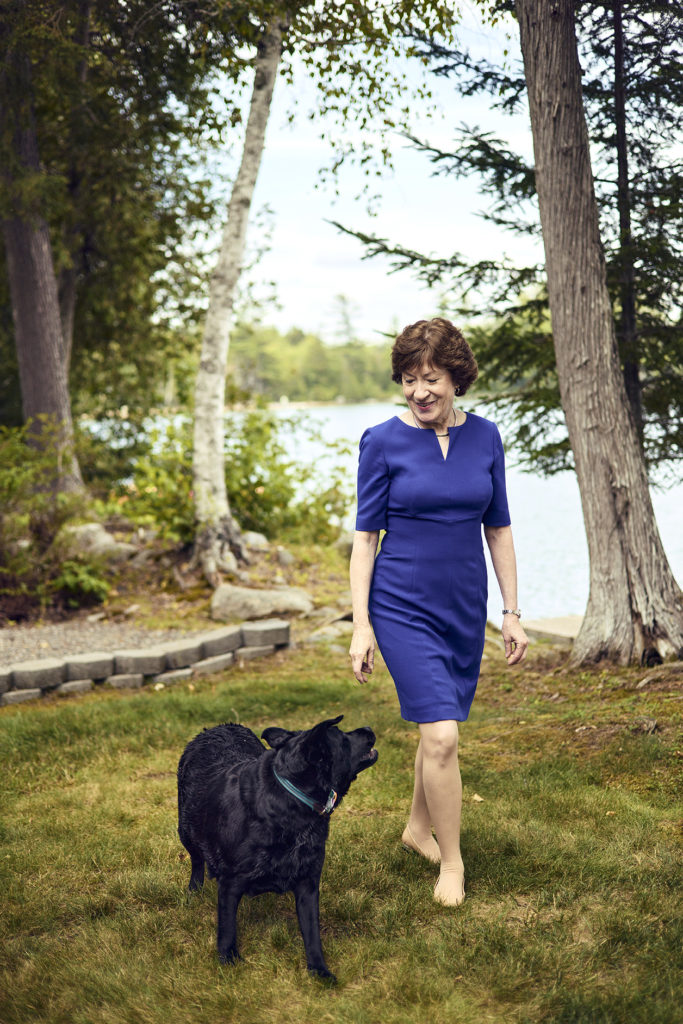
Susan Collins
Senior United States Senator
Last year, knowing the catastrophic damage small businesses, nonprofits, and employees faced because of the COVID-19 pandemic, Senator Susan Collins developed the idea of a forgivable loan program to help small businesses survive and continue to pay their employees. Along with three of her colleagues—a fellow Republican and two Democrats—she authored the Paycheck Protection Program (PPP), which over the course of just a few weeks in March 2020 went from an idea to a massive relief effort. As the virus continued to spread, Collins led a bipartisan group to write a fifth COVID-19 relief law that included a second round of PPP funds. “These forgivable loans served as a lifeline to five million small employers and helped to sustain upwards of 50 million jobs nationwide in 2020 alone,” Collins says. In addition to advancing business aid, Collins convened the first congressional hearing on COVID-19 and nursing homes, ensured that Centers for Disease Control and Prevention guidelines didn’t impede access to dental care, and helped pass legislation that delayed reimbursement cuts and made it easier for seniors to access home health care. Collins also joined a group of ten senators, evenly divided between Republicans and Democrats, who created a landmark infrastructure package that would invest approximately $1 trillion into the United States’ roads, bridges, airports, seaports, railways, water treatment systems, and broadband. “One of the most significant provisions for Maine is the $65 billion investment to expand high-speed internet access to unserved areas of our country, mostly in rural areas, and improve service in underserved communities,” says Collins. “It has become increasingly clear in recent years—and especially in light of the pandemic—that broadband is no longer a luxury but a necessity.”
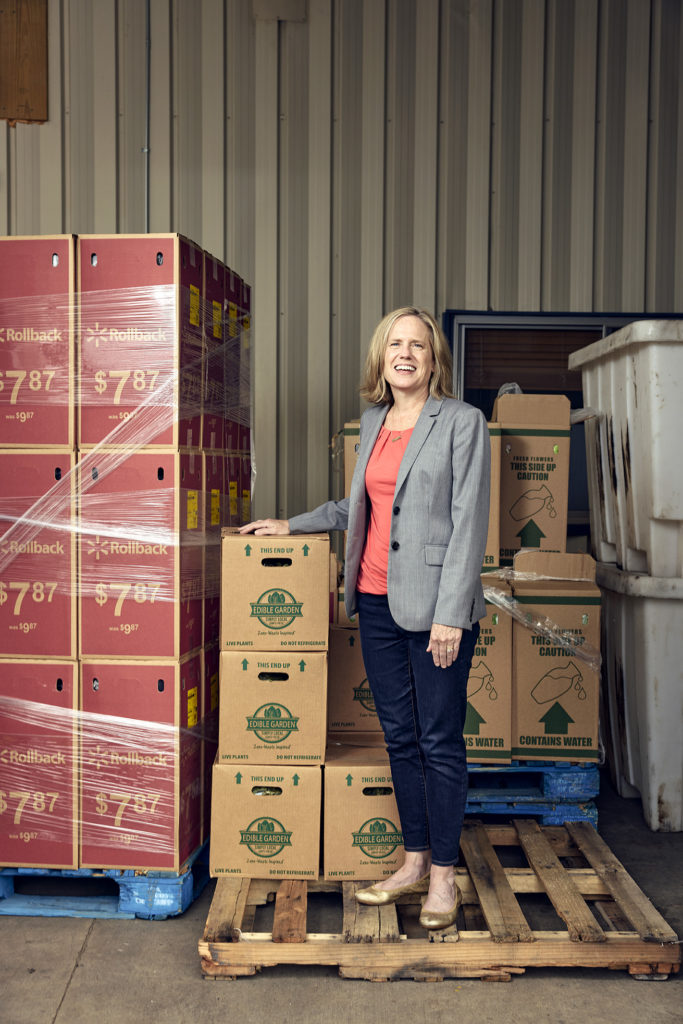
Kristen Miale
President of Good Shepherd Food Bank
In a normal year, Kristen Miale, who has been at Good Shepherd Food Bank for over a decade, faces onerous challenges. The Food Bank’s charitable food network, originally built for emergency relief, helps to feed 13 percent of Maine’s population. COVID-19 has amplified hunger and poverty in a way the organization’s president says she has never seen before, with unprecedented demand in the face of a reduced volunteer corps, disruptions in the supply chain, and the logistical challenges of delivering more food safely to all who need it. “Yet, 95 percent of our partners remained open and operational throughout the pandemic and welcomed more people than ever before—including many people and families who visited a food pantry for the first time in their lives,” says Miale. With its partners, Good Shepherd Food Bank distributed 31.3 million meals throughout 2020, a 25 percent increase over the prior year. While scrambling to respond to this increase in need, Miale and her team also went to work redistributing funds to other nonprofits led by and serving Black, Indigenous, and people of color through a low-barrier grant program designed to increase access to culturally important foods called the Community Redistribution Fund. “Here in Maine, 28 percent of households led by a person of color are food insecure, which is more than two times the rate for all Maine households,” says Miale. Since April 2020, Good Shepherd Food Bank has granted nearly $500,000 to more than 20 organizations across the state, forming invaluable new partnerships that will help inform and grow this area of its work in the future.
Environment + Outdoors

Drew Dumsch
Cofounder, President + CEO of the Ecology School
On Earth Day of this year the Ecology School, a nonprofit environmental education program for students of all ages, celebrated the completion of its new $14.1 million residential environmental learning center at River Bend Farm in Saco. The project, which includes a 144-bed dormitory and 7,000-square-foot dining commons, is significant on its own, but what is more impressive is that it produces more energy than it uses, thanks to 712 solar panels installed by ReVision Energy. The campus is one of 25 projects in the United States, and the first in Maine, to be built to the specifications of the Living Building Challenge, the world’s most rigorous green building certification. “As an environmentally focused organization that prioritizes innovative education,” says cofounder, president, and CEO Drew Dumsch, “if we don’t work with the building industry in Maine to do better, how can we authentically be a catalyst for sustainability, resiliency, and change?” With the Ecology School’s residential environmental learning programs put on hold for over a year due to pandemic restrictions, the staff developed all-new environmental education programs, such as a series of videos created for parents and teachers that eventually, with funding from Poland Spring, led to an online learning platform. “Now that Maine has a living, breathing, and thriving example of what a sustainable community can look like,” says Dumsch, “I hope River Bend Farm will become known as a place where people of all ages come to learn and live together through comfortable living in beautiful spaces, eating delicious food that is being grown on our own agroecology farm, and having fun exploring the nature trails on our 105-acre farm.”

Bri Dostie
Founder of Confluence Collective, Maine Guide, Illustrator + Writer
The mission of Bri Dostie’s social enterprise, Confluence Collective, is to create a space for fly-fishers who don’t match the traditional archetype: straight, white, male, able-bodied. “We do this through experiences, advocacy, and education,” says Dostie, who founded the group in 2019. In the past year, despite the COVID-19 pandemic, Dostie has deepened local connections and formed new collaborations with Maine outdoor entities like the Adaptive Outdoor Education Center and the Nature Based Education Consortium, as well as with Portland-based social groups. “I’m proud we could leverage education and art-based learning in new ways that ultimately will improve how we approach our work from now on,” she says. This meant instead of learning stations at outdoor events, Confluence Collective brought learning into the home, through shareable coloring pages and virtual learning series, for example. “It also meant being really flexible and thoughtful about what people needed,” Dostie says, “and leaving lots of space for emotionality and pain, and normalizing all of it—well beyond the typical ‘feel good’ fishing vibes.” Dostie believes that Maine has played an important historical role in expanding fly-fishing as a way for people to connect with nature. “Unfortunately, fly-fishing remains predominantly white and male, despite a growing diversity in identities that call Maine home,” she says. “I think our past uniquely positions us to be a part of defining more expansive and inclusive possibilities for the future of fly-fishing.”

Brian Skerry
Photojournalist + Film Producer
Brian Skerry has spent decades photographing the world’s oceans for National Geographic and other publications, but his most recent assignment has brought him home, in the cold waters off the coast of Maine. Skerry, who lives in York, pitched the project because he’s long been interested in producing a body of work on the Gulf of Maine, where he first began diving decades ago, and the region now finds itself as an epicenter of global oceanic climate change. The Gulf of Maine is warming faster than 99 percent of the world’s oceans, and Skerry says the changes occurring here are a harbinger of things to come worldwide. He’s published four online pieces about the Gulf of Maine for National Geographic over the past year and will continue to create online stories leading up to the print project, which will likely be published in 2023. “If in fact we are the tip of the spear in terms of climate change and all the changes that may occur as a result of it, how we deal with it could be a model for the rest of the world,” Skerry says. “That’s the hope, that we figure things out and do a reasonable job to survive.” This year also marked the release of Skerry’s most ambitious project yet: a documentary series, Secrets of the Whales, which he filmed over the course of three years, along with a companion book and National Geographic print story. The series, which James Cameron produced, and Sigourney Weaver narrated, was nominated for three Emmy Awards.
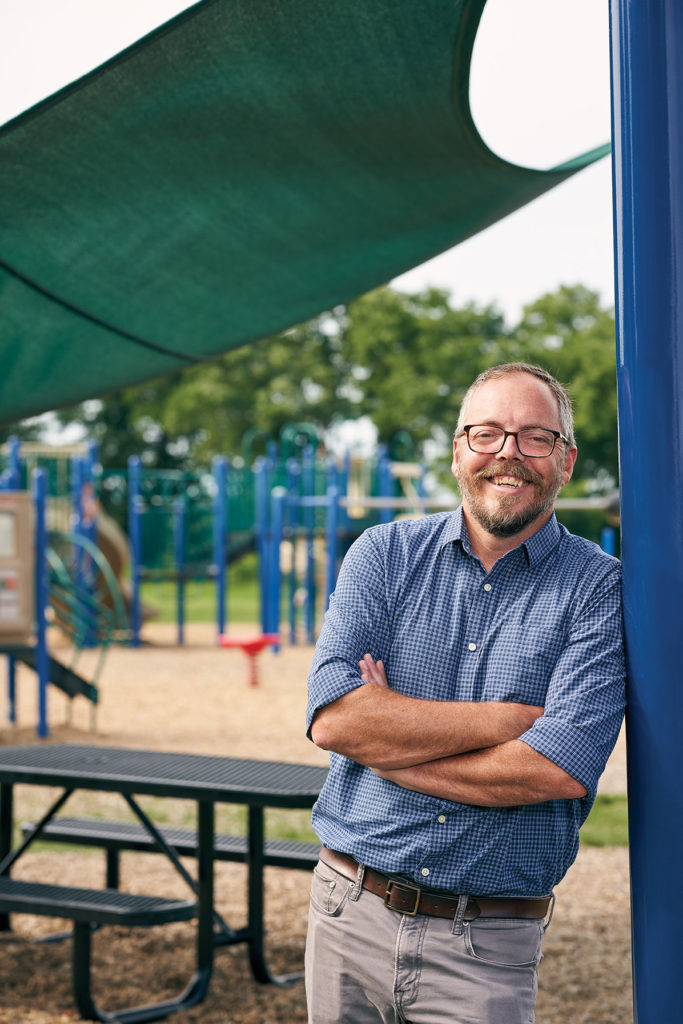
Ethan Hipple
Director of Parks, Recreation, and Facilities Department for the City of Portland
As a teenager, Ethan Hipple, director of parks, recreation, and facilities for the city of Portland, took part in a youth corps program that he says changed the course of his life. This year, with funding help from the Portland Parks Conservancy and Maine Audubon, Hipple’s department started a similar program. Portland Youth Corps (PYC) allows a diverse array of young people aged 14 to 17 to participate in service projects in Portland’s public parks. Along the way, they also take part in career exploration, first aid training, environmental education, and outdoor adventures. “I’m so glad our department can now offer that same opportunity to kids who are eager to be part of positive change in this world,” Hipple says. The department has also done much to create new open spaces, particularly at the Park at Amethyst on the eastern waterfront, where a former 1.5-acre parking lot is now a green space with a waterfront bike lane and promenade. “While people may take a vacation or a once-in-a-lifetime trip to go visit a national park, our local city parks and trails are the bread-and-butter places that we visit every day and impact our quality of life,” Hipple says. He’s also proud of the Park and Play program, in which recreation staff visit a rotating list of playgrounds in low-income areas where the local kids may not be able to afford to go to camps. With a van full of fun activities, the staff offer games, craft projects, and free snacks. “The program doesn’t bring in any revenue for our department,” Hipple says, “but I think it represents the heart and soul of the impact we can have on the public.”

Briana Warner
CEO of Atlantic Sea Farms
Atlantic Sea Farms started off 2020 strong. The kelp farming company launched a collaboration with chef David Chang and Sweetgreen in February, and it had pre-sold its upcoming kelp harvest to food service outlets and fast casual chains throughout the country. “Then, it all evaporated,” says CEO Briana Warner. Heading into the harvest season in April, the company had 16 partner farmers—many of them commercial fishermen and lobstermen trying to diversify their incomes—and no buyers for hundreds of thousands of pounds of seaweed. “We didn’t know exactly what we were going to do with the kelp, but we knew we needed to uphold our word to our partner farmers and find another way to come back stronger,” Warner says. “We brought on new team members to help grow our retail presence, and we not only lived to see another day, but we thrived.” In just one year, the company transitioned its sales model from food service to retail, and has placed its products in more than 1,300 retail stores nationwide. This year Atlantic Sea Farms’ 24 partner farmers grew twice as much as they did last season; the company produces more than 80 percent of all the line-grown seaweed grown in the country. “Maine is now not only the epicenter of U.S. line-grown kelp but also the proof of concept to which the rest of the country is looking to see how to help diversify their own coastal communities,” Warner says. “We need kelp aquaculture on the coast of Maine for a better future, and the future is looking bright for kelp.”
Business
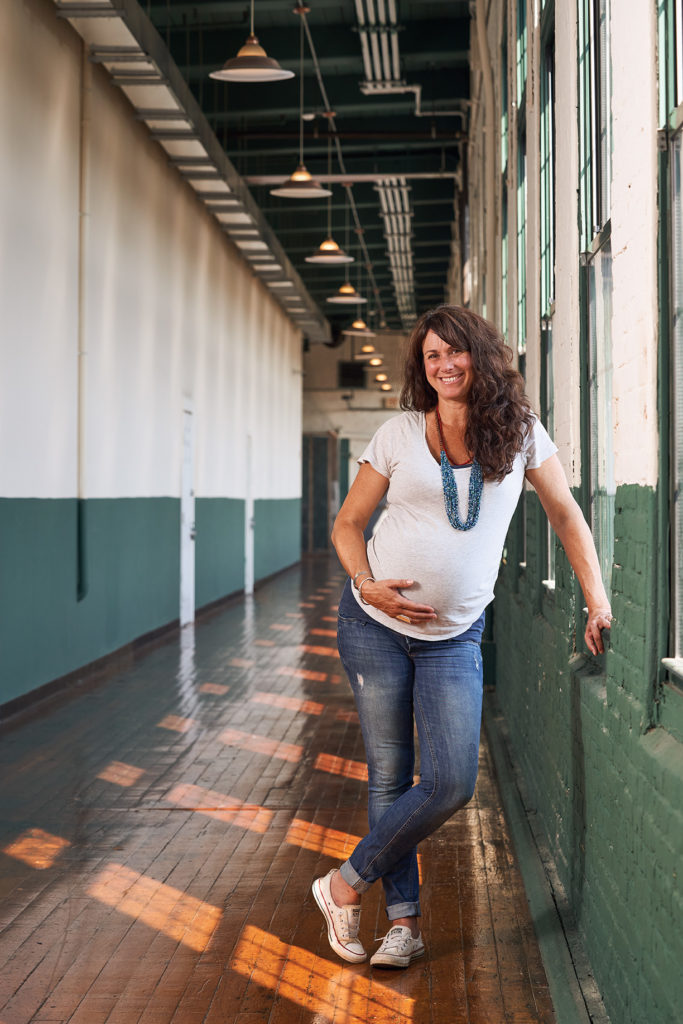
Whitney Reynolds Waxman
COO and President of American Roots
First and foremost, Whitney Reynolds Waxman is proud that she was able to save her family’s business this year. American Roots, an apparel company based in Westbrook that crafts 100-percent American-made, union-made, customized apparel, watched 70 percent of its potential sales for the year disappear when COVID-19 hit. “I didn’t know if we were going to lose everything we had spent the last five years building,” Reynolds Waxman says. But then the textile company pivoted its production line to a product that was in desperate demand: face masks. “Growing our business from 25 employees to 125 during a pandemic offered a real sense of accomplishment,” Reynolds Waxman says. “Creating jobs in our community is what our little company is all about.” On top of the challenge of being a business owner over the past year, the chief operating officer and president is also the mother of two toddlers, and pregnant with her family’s third. “Trying to balance family and business, while one of my biggest accomplishments, has also proved to be one of my biggest challenges,” she says, “but it’s one that I’ve gladly accepted and hopefully conquered.”
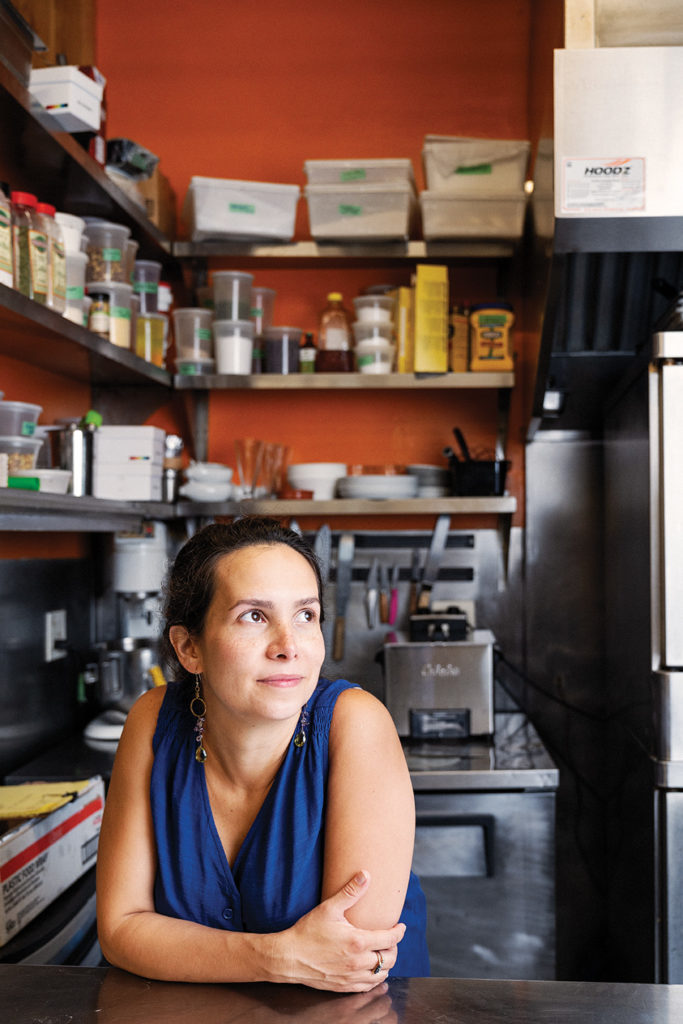
Ilma Lopez
Co-Owner of Chaval
Around the time the pandemic forced Chaval to close its doors in March 2020, co-owner Ilma Lopez received a call from John Woods, who was president of Full Plates, Full Potential and has since passed away, asking if she could help feed 3,000 Portland students who would be without meals after schools suddenly closed. “I turned around and called my friends”—Paige Gould of Central Provisions, Bryna Gootkind of LB Kitchen, Ian Malin of Little Giant, Jordan Rubin of Mr. Tuna, and Cyle Reynolds of Crispy Gai—“and between us we got it done,” Lopez says. That was the first but not the last call Lopez received to help others while she and her husband, Damian Sansonetti, tried keeping their business afloat. Chaval was one of the first restaurants to join Cooking for Community, a grassroots organization that has been having restaurants prepare healthy meals for people in need. Whether they would step up to help people in their community was never a question, Lopez says. “If we don’t take care of our home, how are we expecting it to survive?” In June 2020 she organized a local effort that raised $8,000 for Bakers Against Racism, a national movement of chefs selling baked goods to fund organizations helping Black people. After operating as a takeout-only restaurant with a skeleton crew, including Sansonetti and chef de cuisine Kirby Sholl, Chaval reopened its in-person service in July 2020 with outdoor dining. When winter rolled around, Chavel continued outdoor dining to keep its employees and community safe. In addition to a patio with heat lamps and heated seat pads, Chaval built private, heated greenhouses for diners to enjoy a sense of normalcy with their meals. “When it’s so cold and it’s snowing and people show up to eat outdoors in their ski gear, it’s a wonderful feeling,” Lopez says. “When you see people enjoying it in extreme conditions like that, it’s pretty magical.”

David Roux
Managing Partner of BayPine
At the beginning of last year, Northeastern University announced it was partnering with entrepreneur, investor, and Maine native David Roux to launch a graduate education and research campus in Portland. The Roux Institute, which was envisioned by Roux and his wife, Barbara Roux, and kickstarted with a $100 million gift from their family foundation, aims to bring Maine into the advanced technology economy and provide sustained economic growth. The state-of-the art graduate education program blends academic instruction with advanced research opportunities and work experiences at the institute’s business partners. In its first year, the Roux Institute enrolled more than 500 students and attracted 45 corporate partners, raising the profile of the state as a source for advanced computing talent and an appealing location for corporate research labs and new business initiatives, Roux says. “The response of the workforce has demonstrated the wisdom and reinforced the soundness of the core strategy, which is that people want to participate in an advanced economy but have more geographic diversity of how to do that,” he says. Roux, who spends summers in Maine and has extended family here, says he wanted to establish the institute in Maine because he loves the state and wants to make sure as many people as possible have a chance to live, work, and prosper here. “Eventually, in life,” Roux says, “you look ahead and hope the next generation and the generation after that have an opportunity to grow and prosper in a place you know and love.”
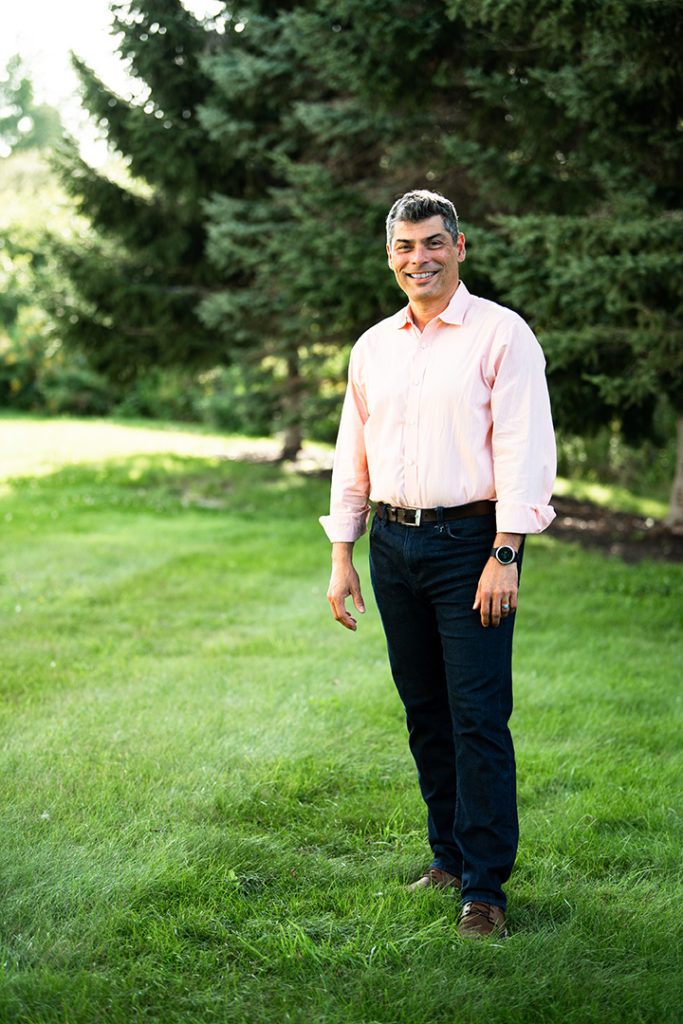
Kerem Durdag
President and Chief Operating Officer of Great Works Internet, Founder and Managing Partner of Indus Fund
Great Works Internet (GWI) is “maniacal” about having all Mainers connected to broadband Internet, says Kerem Durdag, president and chief operating officer of GWI, which last year became the nation’s first telecommunications carrier to be certified as a B Corporation. “It is a question of inclusion, equity, and complete participation in the 21st century.” Reliable and affordable broadband infrastructure has been largely absent in rural Maine, Durdag says, blocking many residents from participating in remote work, distance education, and telehealth, as well as accessing business opportunities and services, participatory government, and other benefits. “If Maine is to prosper, broadband has to be one of the anchor points,” he says. Toward that goal, this year GWI received ConnectMaine Authority funding to expand its high-speed fiber-optic network to the community of Northport and is busy coordinating with municipalities across Maine. It also worked with the Finance Authority of Maine and Arctaris Impact Fund to finance a $11 million project to bring high-speed fiber-optic internet to South Portland and Belfast. After years of planning, Durdag helped launch the Indus Fund in October 2020. The program works with cPort Credit Union to provide below-market interest rate loans to the immigrant business community in Maine. “Immigrant business owners have to have the access to the banking infrastructure in order to grow their businesses, contribute to the overall economic development of the state, and participate in creating generational wealth,” Durdag says. “This is a call to knit the fabric of human society that allows for the fullest participation in our democracy.”

Shawn Gorman
Executive Chairman of L.L.Bean
Last year L.L.Bean did something it had only done four times before in its century-plus history: closed its Freeport flagship store. The result of the pandemic shutdown, the two-and-a-half month shuttering was the first time the store had been closed for more than 24 hours. But despite the closure of its retail stores around the country, L.L.Bean saw its biggest revenue jump in nine years. “As a 109-year-old company, we have weathered a fair number of economic and other storms over the years—World Wars, the Great Depression, and, more recently, 9/11 and the Great Recession,” says Shawn Gorman, executive chairman of the company. “A global pandemic was altogether different, with the convergence of both a public health and an economic crisis at the same time.” The company also lent its resources and facilities to assisting Mainers in need. Early in the pandemic, L.L.Bean began manufacturing medical-grade masks for healthcare workers at its Brunswick facility. The outdoor retailer also partnered with Good Shepherd Food Bank to use its shipping hub in Freeport to pack food for pantries across the state.
Art + Culture
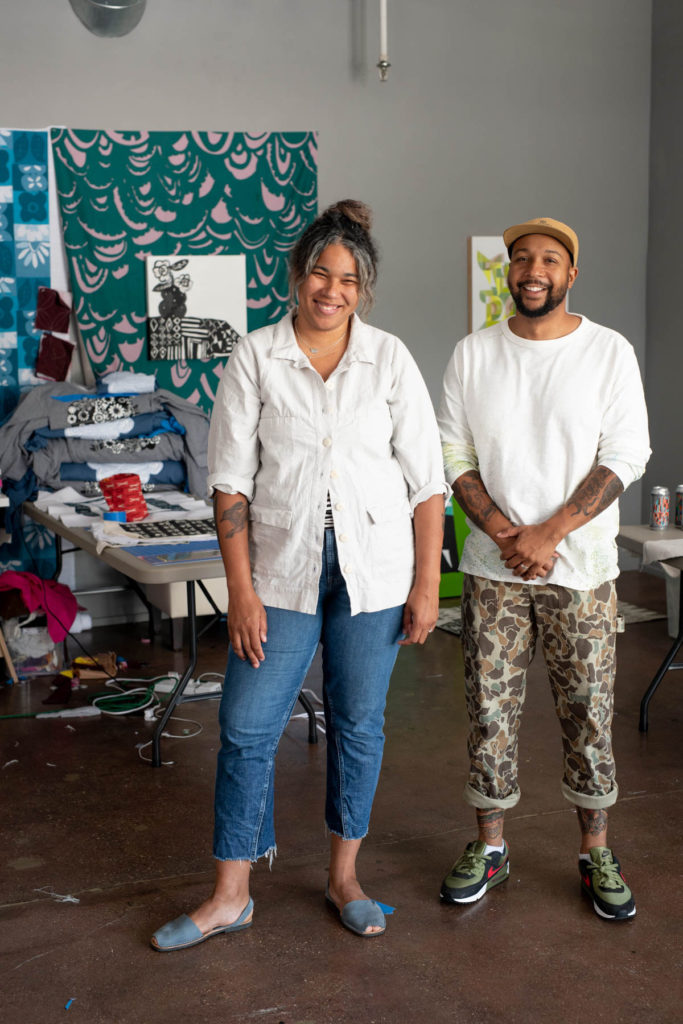
Rachel Gloria Adams
Artist + Textile Designer
Ryan Adams
Artist + Muralist
While the pandemic has overshadowed life over the past year and a half, the combined creativity of Ryan Adams and Rachel Gloria Adams has been a bright spot. Their murals and other public art have proliferated throughout Portland, shaping the look and feel of the state’s largest city. “With our country going through a racial and cultural awakening, along with not having the opportunity to gather in places like galleries and exhibition spaces, public art took a new role within our communities over the past year,” Ryan says. “A lot of people used public works of art to express themselves and open a dialogue within their community.” His work has included a temporary mural on the Portland Museum of Art’s facade, a mural of George Floyd behind the nightclub Aura, completed within 10 days of Floyd’s death, and his largest project to date, an 8,000-square-foot mural outside the Gem Theater in Bethel. Last year Rachel launched Tachee, her line of hand-printed home goods and kids clothing, and this year she completed two colorful, geometric murals at the new Children’s Museum and Theatre of Maine, her first solo mural project. Bringing their two young daughters to the ribbon-cutting ceremony to see the murals is one of Rachel’s proudest accomplishments. “Watching them play in the space and recognize their mama’s work is something I will always remember,” she says. The couple collaborated on a pair of murals in East Bayside honoring two prominent members of the neighborhood, Nyamuon Nguany Machar, a community organizer, and the late Alain Nahimana, who cofounded the Greater Portland Immigrant Welcome Center. “I’ve always loved how exterior art pieces can bring people together in a unique and positive way,” Ryan says. “There have been so many times where I have watched neighbors that had previously never spoken, stop and discuss the mural that I am working on. I think that this sort of unique connection is even more important during collective turbulent times like we all just experienced.”

Con Fullam
Founder of Pihcintu Multicultural Chorus, Greenlight Maine + Elevating Voices, Composer + Producer
Con Fullam, who was born on a farm in Sidney to a musically minded family, has been playing and performing since he was five years old. Today, Fullam is an award-winning producer, musician, song-writer, and five-time Emmy Award nominee. In 2006, driven by his deep concern for the effect of war, famine, and political turmoil on children, Fullam founded the Pihcintu Multicultural Chorus, a multinational immigrant and refugee girl’s chorus. “Over 300 girls have participated, and of that number 100 percent have graduated from high school, and 85 percent have gone on to post-secondary education,” Fullam says. Just before the pandemic hit, Pihcintu performed for Bono at a meeting of the General Assembly of the United Nations; last year the chorus marked the end of lockdown with YoYo Ma accompanying them onstage at a concert in Bar Harbor celebrating Juneteenth. On top of Fullam’s work bringing attention to the difficulties of refugee children, he is also the creator and showrunner of Greenlight Maine, a series designed to expose and elevate the thriving entrepreneurial ecosystem that is ever-expanding here, as well as Elevating Voices, a series created last year that celebrates diverse businesses and their importance to Maine’s economy. “It has provided the viewers of Maine Public Television with a multitude of ‘aha’ moments,” says Fullam, “highlighting the contributions by so many talented entrepreneurs, from Somali farmers in Wales, Maine, to Wabanaki makers of fine jewelry, haute couture, and Native American music.”
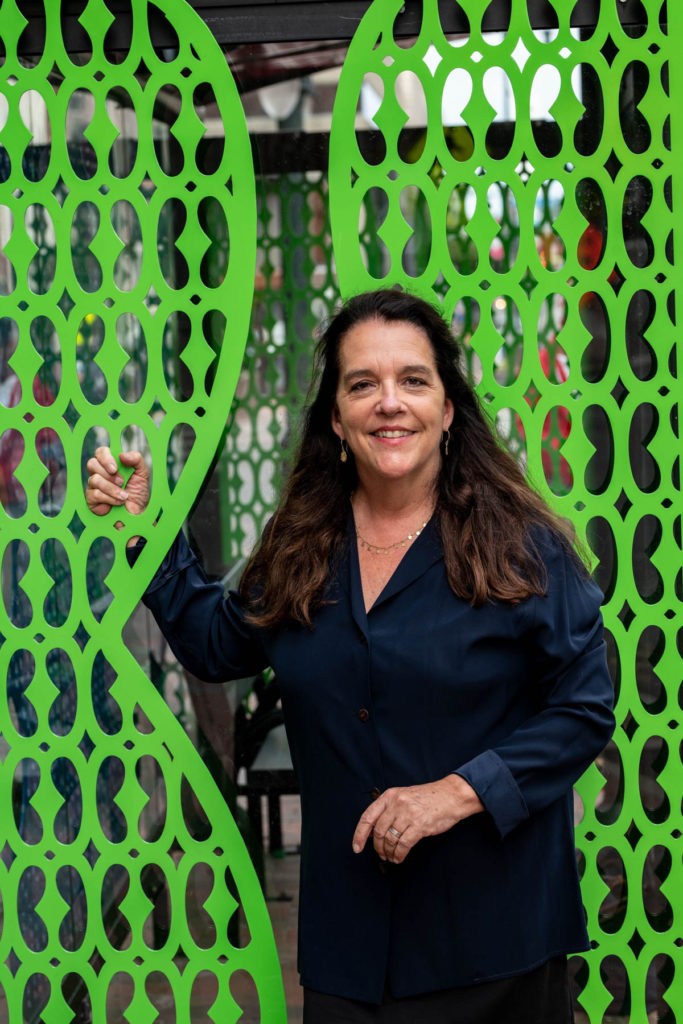
Dinah Minot
Executive Director, Creative Portland
Last year, in response to COVID-19, Creative Portland executive director Dinah Minot established the Portland Artist Relief Fund, which has raised $95,000 in funding and has disbursed stipends of $500 to over 100 local artists. The city’s arts organization, which is entrusted with growing and sustaining Portland’s creative economy, also hired three dozen artists to create public health banners, which served to promote community resilience during the pandemic, to educate people on mask wearing and social distancing, and to provide artists with work in an otherwise deflated gig economy. Ultimately Minot, who is a former TV and film producer, sees her job as building partnerships among arts groups and private enterprise. Creative Portland’s bus shelter initiative, which funded art installations on city bus shelters by local artists, three of them immigrants, came out of Minot’s personal priority of finding more opportunities for public art. In addition to these initiatives, Minot and her team are at work developing a free cultural mobile app, which will be launched in February 2022 and will include filterable maps, guides, and self-guided tours of galleries, murals, cultural organizations, and public art by local artists. “Imagine everything that you want to find in the local arts scene in the palm of your hand,” says Minot.

